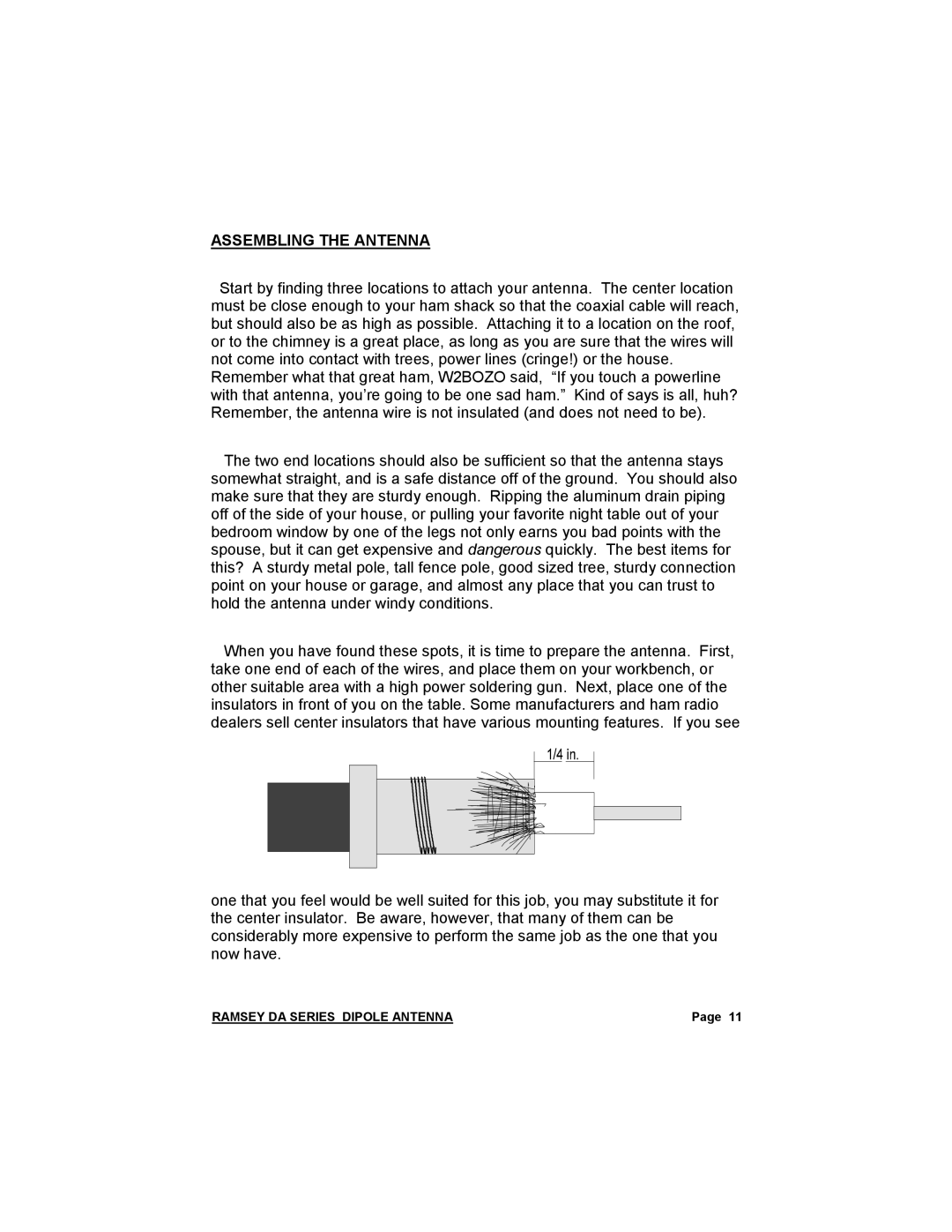DA-1 specifications
The Ramsey Electronics DA-1 is a highly revered audio amplifier designed for various audio applications, including broadcasting, public address, and home audio systems. Known for its simplicity and reliability, the DA-1 is an essential tool for hobbyists and professionals alike. This article focuses on its main features, technologies, and characteristics that set it apart in the competitive audio amplifier market.One of the standout features of the DA-1 is its versatility. Supporting a wide range of audio sources, it can be connected to microphones, mixers, or other audio devices. The DA-1 is engineered with high-quality components that ensure exceptional sound clarity and fidelity. With a power output of 1 watt RMS into an 8-ohm load, it provides sufficient amplification for small venues or personal listening experiences.
The amplifier employs a compact design, making it easy to integrate into various setups. Its lightweight construction allows for hassle-free portability, which is advantageous for users who need to transport their audio equipment frequently. Furthermore, the DA-1 operates on a simple DC power source, making it energy-efficient and convenient, especially in outdoor settings.
One of the key technologies in the DA-1 is its use of a Class D amplifier architecture. This modern design provides greater efficiency compared to traditional Class A or Class AB amplifiers. Class D amplifiers generate less heat and consume less power while delivering high-output performance. As a result, the DA-1 can maintain audio quality without compromising on energy efficiency.
The amplifier also features built-in gain control, allowing users to easily adjust the sound levels according to their preferences. This ensures that audio output can be finely tuned, accommodating both quiet settings and louder environments effectively. Another noteworthy characteristic is the DA-1's durability, making it suitable for both indoor and outdoor applications.
In summary, the Ramsey Electronics DA-1 is a versatile, powerful, and compact audio amplifier that stands out due to its Class D technology, excellent sound fidelity, and user-friendly features. Whether for professional or personal use, this amplifier remains a favorite among audio enthusiasts seeking reliable performance in a straightforward package.

